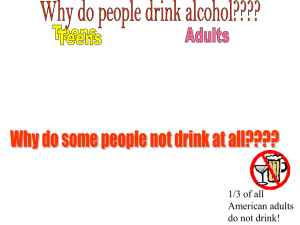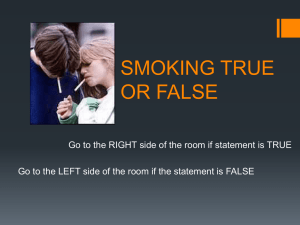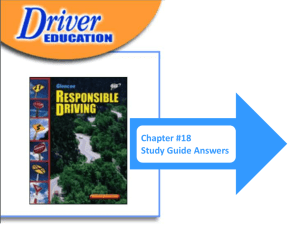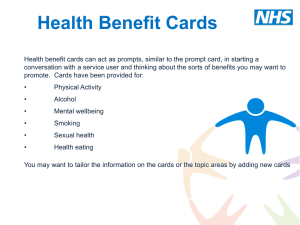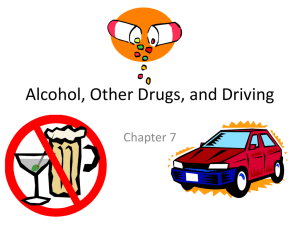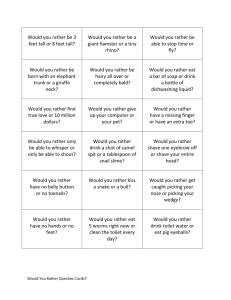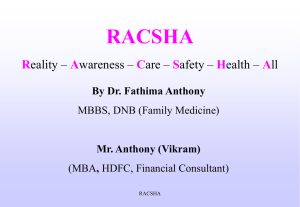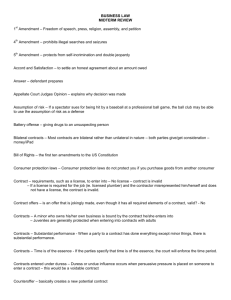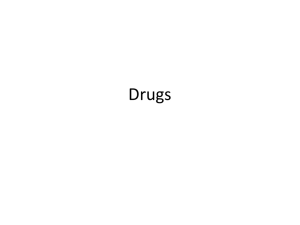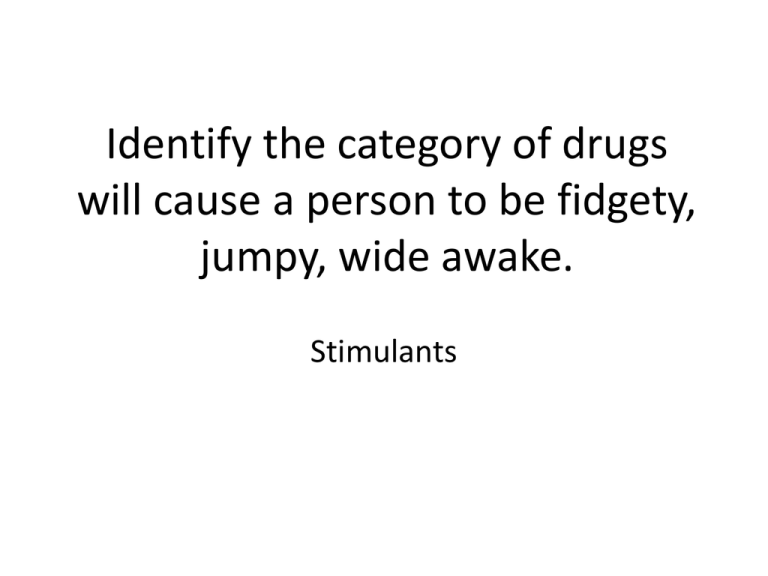
Identify the category of drugs
will cause a person to be fidgety,
jumpy, wide awake.
Stimulants
This category of drugs slows down the
CNS.
• Depressants
Identify the category of drug causes
visual disturbances and sensory
illusions.
• Hallucinogens
Identify the category of drugs includes
powerful and highly addictive pain
killers.
• Opiates/Narcotics
Explain the risk of mixing two drugs
together?
• Multiplier effect. The combination of two
drugs mixed together is greater than the effect
of each drug used individually. The multiplier
effect can lead to death/illness.
Can list the signs of drug dependency.
• Using more of the drug to get the same effect.
• Changes in mood and behavior.
• Withdrawal from friends and family.
Can describe and give an example of
tolerance.
• A person needs to drink more alcohol each
time in order to get the same effect.
Can describe and give an example of
withdrawal.
•
•
•
•
Tremors.
Headache, nausea, vomiting.
Hallucinations.
May feel cold.
Identify the drug that is linked to more
automobile accidents than any other.
• Alcohol
Identify the BAC level of intoxication
for DWI.
• DWI =.08 or higher
Can describe the Zero Tolerance law
and it’s penalties
• Applies to any one 21 years of age or younger.
• BAC .02-.07
• License suspended for six months and pay a
civil penalty of $125. You must pay an
additional $100 fee in order to have your
license reinstated.
• License suspended 1 year or until the age of
21 which ever is longer.
Identify the rate of oxidation of alcohol
and what organ oxidizes the alcohol.
• ½ ounce per hour, this equals one drink.
• One drink is 1 beer, 6 ounces of wine, 1 mixed
drink made from 60 proof alcohol.
Describe the signs of alcohol overdose
and what a person should do.
Unconscious
Weak rapid heart beat
Cold clammy skin
Irregular breathing pattern
Call 911
The active chemical in Marijuana
• THC
The effect of nicotine on blood
pressure.
• Increases blood pressure leading to the
disease arteriole sclerosis
Describe the dangers of smokeless
tobacco.
• Oral Cancer (mouth, throat, gums)
• Addictive
• NOT less harmful than smoking
Addictive chemical in tobacco.
• Nicotine
Identify the disease that is due to
damaged alveoli.
• Emphysema
Describe effective methods to quit
smoking
• Fade – cut down gradually.
• Smoking cessation support group.
• Medication – Patch
The organ that breaks down alcohol
• Liver

